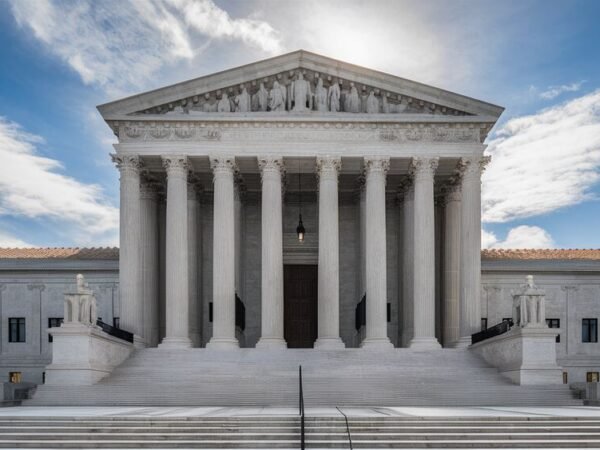Introduction
In recent years, social media platforms have come under intense scrutiny for their impact on users and the broader societal implications of their business practices. One example is the growing legal battle against Meta Platforms, Inc. (formerly Facebook, Inc.), which operates Facebook and Instagram. This lawsuit, often called the “Drive Social Media lawsuit,” raises critical questions about Meta’s liability, particularly concerning youth mental health and advertising practices.
Youth Mental Health and Addiction Concerns
The youth mental health and addiction lawsuit is spearheaded by a coalition of 33 states, led by California Attorney General Rob Bonta, along with 42 attorneys general nationwide. These lawsuits allege that Meta deliberately designed features to be addictive, targeting children and teenagers, thereby negatively affecting their mental health. Plaintiffs argue that elements like endless scrolling and personalized algorithms are crafted to maximize user engagement, often at the expense of young users’ well-being. This lawsuit aims to hold Meta accountable for its design choices that potentially contribute to mental health issues such as anxiety, depression, and low self-esteem among teenagers.
This legal action has been centralized into a Multi-District Litigation (MDL) in the Northern District of California, consolidating over 400 cases. This approach aims to streamline the judicial process, with trials for bellwether cases expected to begin in June 2025. These trials will focus on personal injury claims from parents and school districts alleging harm caused by social media addiction. The outcome of these cases could set a significant precedent for how social media platforms are regulated and held accountable for their impact on users.
Advertiser Class-Action Lawsuit
In addition to concerns about youth mental health, Meta faces a class-action lawsuit from advertisers. Plaintiffs in this case allege that Meta inflated ad viewership metrics, misleading advertisers about the potential reach of their ads. The “Potential Reach” metric is at the center of this controversy, with accusations that it included fake and bot accounts, thus exaggerating the actual audience size. This alleged inflation led advertisers to overpay for ads on Facebook and Instagram, believing they were reaching a larger audience than they were.
The financial implications for advertisers are significant, with plaintiffs seeking $7 billion in damages. They argue that Meta’s practices were misleading and financially harmful. Meta, however, denies these allegations, stating that advertising costs are based on performance metrics rather than the disputed reach metric. This defense suggests that the actual effectiveness of ads, in terms of engagement and conversions, determines the cost, not the potentially inflated audience numbers.
Meta’s Defense and Legal Arguments
Meta’s legal defense strategies in these lawsuits are multifaceted. One key element is reliance on Section 230 of the Communications Decency Act, which provides immunity from liability for content posted by users. However, plaintiffs argue that these lawsuits focus on the design of the platforms rather than user-generated content. This distinction is crucial because it challenges the applicability of Section 230 in this context, potentially undermining Meta’s defense.
Another critical aspect of the lawsuits involves allegations of violations of the Children’s Online Privacy Protection Act (COPPA). Plaintiffs claim that Meta unlawfully collected personal data from young users without parental consent. If proven, these violations could lead to significant penalties and further regulatory scrutiny, adding another layer of complexity to Meta’s legal challenges.
Investigations and Findings
Investigations into Drive Social Media’s practices have also revealed troubling patterns. Over a span of eight years, the company sued 39 businesses, claiming they were owed a total of $765,000. This pattern of litigation raises questions about Drive Social Media’s business practices and its impact on local businesses. Several business owners have come forward with allegations of false promises and poor results, which they claim led to financial losses.
One notable example is Thomas Bledsoe, who runs TNT Elite Credit. He reported receiving minimal leads from Drive Social Media despite being promised targeted ad campaigns. Another client, Barbara Chappuis of Bee Naturals, a skincare company, similarly reported a lack of return on investment from the services provided by Drive Social Media. These accounts highlight the potential risks for businesses engaging with digital marketing agencies and underscore the importance of due diligence when selecting a marketing partner.
Impact and Implications
The broader implications of these lawsuits against Meta are profound. If the plaintiffs succeed, it could significantly change regulatory policies and increase accountability for social media platforms. This could, in turn, impact how these companies design their platforms and interact with users, particularly vulnerable populations like children and teenagers. Moreover, successful lawsuits could set new standards for transparency and accuracy in advertising metrics, ensuring that advertisers receive a fair representation of their potential audience.
Societal implications regarding youth mental health are equally critical. The lawsuits underscore the responsibility of social media companies to safeguard user well-being. If Meta is found liable for designing addictive features, it could prompt a reevaluation of how social media platforms engage users and the ethical considerations involved in these design choices. This could lead to more stringent regulations to protect young users from potentially harmful online environments.
Conclusion
In conclusion, the Drive Social Media lawsuit against Meta raises essential questions about the liability of social media platforms for their impact on users and business practices. These legal actions highlight the need for greater accountability and transparency within the tech industry. As these cases progress, they could have far-reaching implications for regulating social media companies and their business models. The outcomes could shape the future landscape of digital advertising, user engagement, and the overall responsibility of tech giants in safeguarding user well-being and ensuring fair business practices.
Call to Action
It is crucial for stakeholders, including regulators, businesses, and users, to stay informed about the developments in these lawsuits. The potential changes resulting from these legal battles could influence how we interact with social media and the standards these platforms hold. By understanding the nuances of these cases and their broader impact, we can contribute to a more accountable and transparent digital ecosystem.
Do Read: blueFire wilderness lawsuit, what are the key allegations?








